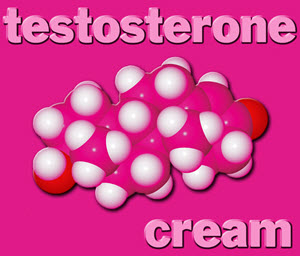Introduction to Peptides in Geriatric Medicine
Peptides, short chains of amino acids, are emerging as a significant therapeutic tool in the realm of geriatric medicine. For American men, who are increasingly seeking ways to maintain vitality and health as they age, peptides offer a promising avenue. These compounds are not only pivotal in regulating various physiological processes but are also showing potential in enhancing the quality of life for older adults.
Understanding Peptides and Their Function
Peptides function as signaling molecules within the body, influencing everything from muscle growth to cognitive function. In geriatric medicine, the focus is on peptides that can mitigate the effects of aging. For instance, growth hormone-releasing peptides (GHRPs) stimulate the pituitary gland to produce growth hormone, which can help in maintaining muscle mass and bone density—critical factors for aging men.
The Role of Peptides in Enhancing Muscle Mass and Strength
As men age, they often experience a decline in muscle mass and strength, a condition known as sarcopenia. Peptides such as GHRPs and CJC-1295 have been studied for their ability to increase growth hormone levels, which in turn can enhance muscle growth and strength. This is particularly beneficial for American men who wish to maintain an active lifestyle into their later years.
Peptides and Cognitive Health
Cognitive decline is another concern for aging men. Peptides like cerebrolysin have been researched for their neuroprotective properties. They may help in improving memory and cognitive functions, offering hope for those dealing with mild cognitive impairment or early stages of dementia.
Peptides in Cardiovascular Health
Cardiovascular diseases are a leading cause of death among American men. Peptides such as B-type natriuretic peptide (BNP) are used as biomarkers for heart failure and can guide therapeutic decisions. Moreover, research into peptides like angiotensin-converting enzyme (ACE) inhibitors suggests potential benefits in managing hypertension, a common condition in the elderly.
The Safety and Efficacy of Peptide Therapy
While the potential of peptides in geriatric medicine is exciting, it is crucial to consider their safety and efficacy. Clinical trials are ongoing, and while some peptides have been approved for specific uses, others are still under investigation. American men interested in peptide therapy should consult with healthcare providers to understand the risks and benefits fully.
Future Directions in Peptide Research
The future of peptide therapy in geriatric medicine looks promising. Ongoing research is exploring the use of peptides in treating a range of age-related conditions, from diabetes to chronic pain. As our understanding of peptides grows, so too does the potential for personalized medicine tailored to the needs of aging American men.
Conclusion: Embracing Peptides in Geriatric Care
Peptides represent a frontier in geriatric medicine that could significantly impact the health and well-being of American men. By potentially improving muscle strength, cognitive function, and cardiovascular health, peptides offer a multifaceted approach to aging. As research continues to evolve, it is essential for men to stay informed and engage with healthcare professionals to explore how peptides might benefit their health as they age.
Contact Us Today For A Free Consultation

- Peptides and Epigenetics: Enhancing Men's Health and Disease Prevention Strategies [Last Updated On: February 20th, 2025] [Originally Added On: February 20th, 2025]
- Exploring the Advancements in Peptide Therapy for Allergy Management in American Males [Last Updated On: February 28th, 2025] [Originally Added On: February 28th, 2025]
- An Overview of Peptides [Last Updated On: March 2nd, 2025] [Originally Added On: March 2nd, 2025]
- Exploring the Role of Bioactive Peptides in Diabetes Management: Therapeutic Potential and Challenges [Last Updated On: March 3rd, 2025] [Originally Added On: March 3rd, 2025]
- Unveiling the Anti-Aging Secrets: The Role of Peptides in Modern Medicine [Last Updated On: March 4th, 2025] [Originally Added On: March 4th, 2025]
- Exploring Peptides as Therapeutic Agents for Male Neurological Disorders [Last Updated On: March 4th, 2025] [Originally Added On: March 4th, 2025]
- Advancements in Peptide-Based Immunotherapy for American Male Cancers [Last Updated On: March 5th, 2025] [Originally Added On: March 5th, 2025]
- Exploring Peptide Therapeutics in Treating Diseases Prevalent Among American Males [Last Updated On: March 6th, 2025] [Originally Added On: March 6th, 2025]
- Unveiling the Potential of Antimicrobial Peptides in Modern Medicine: A Comprehensive Overview [Last Updated On: March 7th, 2025] [Originally Added On: March 7th, 2025]
- The Transformative Power of Peptides in Men's Skincare: A Comprehensive Guide [Last Updated On: March 8th, 2025] [Originally Added On: March 8th, 2025]
- Revolutionizing Male Health: The Power of Biomimetic Peptides in Regenerative Medicine [Last Updated On: March 9th, 2025] [Originally Added On: March 9th, 2025]
- Advancements in Therapeutic Proteins and Peptides: A Focus on Developments and Challenges for American Males [Last Updated On: March 12th, 2025] [Originally Added On: March 12th, 2025]
- Revolutionizing Health: The Role of Peptides in Precision Medicine for American Males [Last Updated On: March 13th, 2025] [Originally Added On: March 13th, 2025]
- Unveiling the Power of Peptides in Wound Healing and Tissue Regeneration [Last Updated On: March 15th, 2025] [Originally Added On: March 15th, 2025]
- Peptides: Revolutionizing Metabolic Health Management for American Males [Last Updated On: March 16th, 2025] [Originally Added On: March 16th, 2025]
- Peptides and Gene Therapy: A New Frontier in Men's Health Treatment [Last Updated On: March 16th, 2025] [Originally Added On: March 16th, 2025]
- Peptides Revolutionize Respiratory Health Management in American Men [Last Updated On: March 18th, 2025] [Originally Added On: March 18th, 2025]
- Peptides: A Targeted Approach to Treating Infections in American Males [Last Updated On: March 18th, 2025] [Originally Added On: March 18th, 2025]
- Peptide Therapies: A New Frontier in Obesity Management for American Males [Last Updated On: March 19th, 2025] [Originally Added On: March 19th, 2025]
- Peptide and Stem Cell Synergy: Revolutionizing Regenerative Medicine for American Males [Last Updated On: March 19th, 2025] [Originally Added On: March 19th, 2025]
- Peptide Therapeutics: Revolutionizing Chronic Disease Management in American Men [Last Updated On: March 19th, 2025] [Originally Added On: March 19th, 2025]
- Peptides Revolutionizing Diagnosis and Drug Delivery for American Males' Health [Last Updated On: March 20th, 2025] [Originally Added On: March 20th, 2025]
- Peptide Vaccines: Progress, Challenges, and Implications for American Males' Health [Last Updated On: March 21st, 2025] [Originally Added On: March 21st, 2025]
- Peptides: A New Frontier in Mental Health Treatment for American Men [Last Updated On: March 21st, 2025] [Originally Added On: March 21st, 2025]
- Peptides in Veterinary Medicine: Diagnostics, Therapeutics, and Regenerative Potential [Last Updated On: March 22nd, 2025] [Originally Added On: March 22nd, 2025]
- Peptide Therapies: A New Frontier in Treating Rheumatic Diseases for American Males [Last Updated On: March 22nd, 2025] [Originally Added On: March 22nd, 2025]
- Peptides Revolutionizing Men's Health: Hormones, Muscle, Aging, and Mental Well-being [Last Updated On: March 22nd, 2025] [Originally Added On: March 22nd, 2025]
- Peptides Revolutionizing Eye Health: A New Frontier for American Males [Last Updated On: March 22nd, 2025] [Originally Added On: March 22nd, 2025]
- Peptides in Sports Medicine: Enhancing Muscle Growth and Recovery for American Males [Last Updated On: March 22nd, 2025] [Originally Added On: March 22nd, 2025]
- Peptide Therapies in Transplant Medicine: Advancements and Impact on American Males [Last Updated On: March 23rd, 2025] [Originally Added On: March 23rd, 2025]
- Peptides and Male Fertility: Exploring Therapeutic Potential and Clinical Applications [Last Updated On: March 23rd, 2025] [Originally Added On: March 23rd, 2025]
- Peptides: A Promising Approach to Managing Liver Disorders in American Males [Last Updated On: March 23rd, 2025] [Originally Added On: March 23rd, 2025]
- Peptide Therapies: Enhancing Bone Health in American Males [Last Updated On: March 24th, 2025] [Originally Added On: March 24th, 2025]
- Peptide Drugs in Pediatrics: Targeted Therapy and Future Prospects [Last Updated On: March 24th, 2025] [Originally Added On: March 24th, 2025]
- Peptides: A Promising New Frontier in Treating Hair Loss in American Males [Last Updated On: March 24th, 2025] [Originally Added On: March 24th, 2025]
- Peptides in Dentistry: Enhancing Oral Health for American Males [Last Updated On: March 24th, 2025] [Originally Added On: March 24th, 2025]
- Peptide-Based Anti-Venom: A Safer Future for American Males at Risk of Snakebites [Last Updated On: March 24th, 2025] [Originally Added On: March 24th, 2025]
- Peptide Radiopharmaceuticals: Revolutionizing Prostate Cancer Management in American Males [Last Updated On: March 25th, 2025] [Originally Added On: March 25th, 2025]
- Peptides: A New Frontier in Epilepsy Treatment for American Males [Last Updated On: March 25th, 2025] [Originally Added On: March 25th, 2025]
- Stem Cells and Peptides: Revolutionizing Men's Health and Regeneration [Last Updated On: March 25th, 2025] [Originally Added On: March 25th, 2025]
- Peptides: Unlocking Health and Performance Benefits for American Males [Last Updated On: March 25th, 2025] [Originally Added On: March 25th, 2025]
- Topic Peptides: A Targeted Approach to Gastrointestinal Disorder Management [Last Updated On: March 25th, 2025] [Originally Added On: March 25th, 2025]
- Peptide-Based Biomarkers Revolutionizing Men's Health Diagnostics [Last Updated On: March 25th, 2025] [Originally Added On: March 25th, 2025]
- Peptide Nanotechnology: Revolutionizing Medicine for American Men's Health [Last Updated On: March 25th, 2025] [Originally Added On: March 25th, 2025]
- Peptide-Enriched Skincare: Enhancing Men's Grooming with Science [Last Updated On: March 25th, 2025] [Originally Added On: March 25th, 2025]
- Peptides: A New Hope for American Men with Neurodegenerative Diseases [Last Updated On: March 25th, 2025] [Originally Added On: March 25th, 2025]
- Peptide-Based Biosensors: Revolutionizing Health Monitoring for American Males [Last Updated On: March 26th, 2025] [Originally Added On: March 26th, 2025]
- Peptides: A New Frontier in Managing Neuropathic Pain for American Men [Last Updated On: March 26th, 2025] [Originally Added On: March 26th, 2025]
- Peptides: A Promising Solution to Antibiotic Resistance in American Males [Last Updated On: March 26th, 2025] [Originally Added On: March 26th, 2025]
- Peptide Therapeutics: A New Hope for American Males with Rare Diseases [Last Updated On: March 26th, 2025] [Originally Added On: March 26th, 2025]
- Peptide-Based HIV Vaccines: Advances and Implications for American Males [Last Updated On: March 26th, 2025] [Originally Added On: March 26th, 2025]
- Peptides and Gut Health: Benefits for American Males [Last Updated On: March 26th, 2025] [Originally Added On: March 26th, 2025]
- Peptides Revolutionizing Endocrinology and Men's Health in America [Last Updated On: March 27th, 2025] [Originally Added On: March 27th, 2025]
- Peptides: A New Frontier in Cardiovascular Disease Prevention for American Males [Last Updated On: March 27th, 2025] [Originally Added On: March 27th, 2025]
- Peptide Bioinformatics: Enhancing Precision Medicine for American Males' Health [Last Updated On: March 27th, 2025] [Originally Added On: March 27th, 2025]
- Peptides Revolutionize Trauma Care for American Males: Healing and Recovery Advances [Last Updated On: March 27th, 2025] [Originally Added On: March 27th, 2025]
- Peptide-Enhanced Photodynamic Therapy: A Targeted Approach for American Males' Health [Last Updated On: March 27th, 2025] [Originally Added On: March 27th, 2025]
- Peptides: A Promising Alternative for Managing Inflammation in American Males [Last Updated On: March 28th, 2025] [Originally Added On: March 28th, 2025]
- Peptides in Men's Health: Cell-Penetrating Advances for Targeted Therapies [Last Updated On: March 28th, 2025] [Originally Added On: March 28th, 2025]
- Bioactive Peptides: Enhancing Men's Health from Cardiovascular to Mental Well-being [Last Updated On: March 28th, 2025] [Originally Added On: March 28th, 2025]
- Peptide Vaccines in Veterinary Medicine: Safety, Efficiency, and Future Prospects [Last Updated On: March 28th, 2025] [Originally Added On: March 28th, 2025]
- Peptide Therapy: Targeting Hematological Disorders in American Males with Topic Peptides [Last Updated On: March 28th, 2025] [Originally Added On: March 28th, 2025]
- Peptide-Based Toxicology: Enhancing Toxin Detection and Mitigation for American Males [Last Updated On: March 28th, 2025] [Originally Added On: March 28th, 2025]
- Peptide-Polymer Composites: Revolutionizing American Male Health Treatments [Last Updated On: March 29th, 2025] [Originally Added On: March 29th, 2025]
- Peptides: A Promising Frontier in Stroke Therapy for American Males [Last Updated On: March 31st, 2025] [Originally Added On: March 31st, 2025]
- Peptides: A Promising Treatment for Acute Kidney Injury in American Males [Last Updated On: April 1st, 2025] [Originally Added On: April 1st, 2025]
- Peptide Drug Conjugates: Targeted Therapy Advancements for Men's Health [Last Updated On: April 3rd, 2025] [Originally Added On: April 3rd, 2025]
- Peptides Revolutionize Burn Care: Enhancing Healing and Reducing Scars in American Males [Last Updated On: April 3rd, 2025] [Originally Added On: April 3rd, 2025]
- Peptides: A Promising New Approach to Treat Substance Abuse in American Males [Last Updated On: April 4th, 2025] [Originally Added On: April 4th, 2025]
- Peptide Therapy: A New Hope for Osteoporosis in American Males [Last Updated On: April 8th, 2025] [Originally Added On: April 8th, 2025]
- Peptide Therapeutics: A New Frontier in Pulmonary Care for American Men [Last Updated On: April 9th, 2025] [Originally Added On: April 9th, 2025]
- Peptide Therapy: A Promising Approach for Autoimmune Diseases in American Males [Last Updated On: April 9th, 2025] [Originally Added On: April 9th, 2025]
- Peptides in Veterinary Dermatology: Promises, Challenges, and the Role of American Male Pet Owners [Last Updated On: April 9th, 2025] [Originally Added On: April 9th, 2025]
- Peptide Therapy Revolutionizes Post-Operative Recovery for American Males [Last Updated On: April 9th, 2025] [Originally Added On: April 9th, 2025]
- Peptide Therapy for Ocular Infections in American Males: Mechanisms and Benefits [Last Updated On: April 9th, 2025] [Originally Added On: April 9th, 2025]
- Peptide Therapies: Targeting Prostate Cancer with Precision in American Males [Last Updated On: April 9th, 2025] [Originally Added On: April 9th, 2025]
- Peptide Therapy: A Promising Future for Treating Depression in American Men [Last Updated On: April 11th, 2025] [Originally Added On: April 11th, 2025]
- Peptides: Key to Fighting COVID-19 in American Males [Last Updated On: April 12th, 2025] [Originally Added On: April 12th, 2025]
Word Count: 498





















